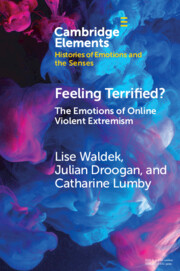Understanding how people perceive the pros and cons of risky behaviors such as terrorism or violent extremism represents a first step in developing research testing rational choice theory aiming to explain and predict peoples’ intentions to engage in, or support, these behaviors. Accordingly, the present study provides a qualitative, exploratory analysis of a sample of 57 male youths’ perceptions of the benefits and drawbacks of: (a) accessing a violent extremist website, (b) joining a violent extremist group, and (c) leaving such a group. Youth perceived significantly more drawbacks than benefits of joining a violent extremist group (p = .001, d = .46) and accessing a violent extremist website (p = .001, d = .46). The perceived benefits of engagement referred to gaining knowledge/awareness, being part of a group/similar people, and fighting the enemy/for a cause. The drawbacks referred to being exposed to negative material and emotions, having violent/criminal beliefs and behaviors, and getting in trouble with the law. The perceived benefits of disengagement referred to no longer committing illegal acts, and regaining independence/not being manipulated. The drawbacks referred to exposing oneself to harm and reprisal. These findings provide an insight into how male youth think about (dis)engagement in violent extremism, and can inform future quantitative research designed to explain and predict (dis)engagement in violent extremism. Eventually, such research may inform the development of evidence-based prevention and intervention strategies.
